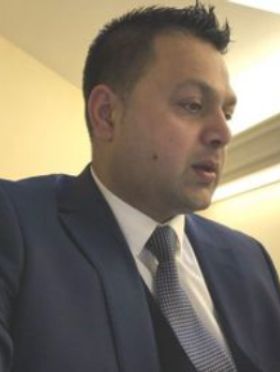What powers does an attorney have in the UK?

To entrust one’s future to someone else is an act of great trust. In the UK, the Power of Attorney enables a designated person to act legally on behalf of another, often during times of vulnerability or incapacity. This mechanism provides broad yet limited powers, and it is essential to understand its restrictions and safeguards. To avoid any errors or misinterpretations, the assistance of a solicitor specialising in wills, trusts, and estate planning is strongly recommended.

Key Takeaway: Is it really possible to retain control by granting a power of attorney?
Read on to find out what a Power of Attorney truly permits, and what it absolutely prohibits.
What a Power of Attorney can do in the UK?
In the UK, the Power of Attorney is a legal instrument that enables the management of a person’s personal, financial, or medical affairs when they cannot act themselves. It grants an attorney the authority to act on behalf of the donor, particularly during incapacity. There are two main types: the Ordinary Power of Attorney, which is temporary, and the Lasting Power of Attorney (LPA), which remains valid even if the principal’s mental capacity deteriorates.
Registered with the Office of the Public Guardian, the power of attorney confers significant powers to the attorney, which must always be exercised in the donor’s best interests and within the terms defined in the document. These powers are extensive but strictly limited, with obligations to respect the donor’s personal wishes and prevent any abuse.
Financial and Property Powers
Property and Financial Affairs attorneys have extensive powers to manage the donor’s financial matters and assets, but these must always be exercised responsibly and in the donor’s best interests.
Bank Account Management: If you have power of attorney can you withdraw money from an account? Yes, attorneys can manage bank accounts, including withdrawing money and making transfers, provided this is always in the donor’s best interests and for legitimate purposes such as care costs, living expenses, and bill payments.
Property Transactions: Can power of attorney sell property before death UK? Yes, attorneys can sell real estate before the donor’s death if this power is explicitly granted in the LPA and the sale is justified and in accordance with the donor’s best interests. All property transactions must be properly documented and conducted at fair market value.
Self-Benefit Restrictions: Can a power of attorney transfer money to themselves UK? Attorneys can only transfer money to themselves in very limited circumstances, specifically for reimbursement of legitimate expenses incurred while acting as attorney, or if explicitly authorised in the document for specific purposes. Any unauthorised personal benefit constitutes abuse.
Health and Welfare Powers
Health and Welfare attorneys can make crucial decisions about the donor’s personal care and medical treatment, but only when the donor lacks capacity to make these decisions themselves:
- Decisions regarding health and care arrangements
- Choice of residence or care facility
- Consent to or refusal of medical treatment
- Daily care routines and lifestyle decisions
- Life-sustaining treatment decisions (only if specifically authorised)
What a Power of Attorney can never do ?
A Power of Attorney in the UK offers significant powers, but it can never override the donor’s fundamental rights or certain essential legal protections. Key limitations include:
Will-related restrictions:
- Can power of attorney change a will? Absolutely not. The attorney has no authority to make, amend, rewrite, or revoke an existing will under any circumstances. Will-making remains a personal decision that cannot be delegated.
- Can my mother change her will if I have power of attorney? Yes, as long as your mother remains mentally competent regarding will-making, she retains the complete right to change her will, regardless of any Power of Attorney arrangements.
- Can power of attorney override a will? No, a Power of Attorney cannot override a will. The estate after death is governed solely by the will or intestacy rules, not by any Power of Attorney arrangements.
- Can a will be changed without the power of attorney knowing? Yes, a mentally competent donor can amend their will confidentially without informing their attorney. Attorneys have no legal right to be involved in will-making decisions.
Other absolute prohibitions
These restrictions exist to protect the donor’s fundamental rights and ensure that Power of Attorney arrangements cannot be misused or extended beyond their intended scope.
Personal Decisions: Attorneys cannot make or change a will, consent to marriage or divorce on behalf of the donor, vote in elections, or make any decisions that continue after the donor’s death. These fundamental personal rights remain exclusively with the donor.
Financial Limitations: Attorneys cannot benefit personally except for authorised expenses, make substantial gifts without specific authority, delegate their powers to others, or act contrary to the donor’s known wishes. All financial decisions must prioritise the donor’s interests above all else.
Legal Restrictions: All attorney powers cease immediately upon the donor’s death, attorneys cannot override the donor’s decisions if they retain capacity for specific matters, and they cannot ignore legal requirements or professional obligations. The law provides clear boundaries that attorneys must never cross.
Limits on abuse and safeguards
UK law provides comprehensive mechanisms to prevent the abuse of power of attorney and protect donors:
- Attorney Duties: Attorneys must always act in the donor’s best interests and never for personal gain. They must respect the donor’s past and present wishes, consider their beliefs and values, and encourage the donor to participate in decisions wherever possible. These duties form the foundation of all attorney responsibilities.
- Oversight Mechanisms: The legal system provides comprehensive monitoring through Office of the Public Guardian oversight, Court of Protection intervention powers, professional supervision requirements, and mandatory reporting of suspicious activities. These mechanisms ensure attorneys remain accountable for their actions.
What can override or invalidate a Power of Attorney in the UK?
Power of Attorney arrangements include multiple safeguards to prevent abuse and protect donors’ interests.
Who can override a Power of Attorney UK:
- The Court of Protection has ultimate authority to remove attorneys, override their decisions, and appoint replacements when abuse or misconduct occurs.
- The Office of the Public Guardian investigates complaints, monitors attorney conduct, and can apply for court intervention when necessary.
- The Donor retains control while mentally capable. Can power of attorney be changed without consent? Yes, donors can revoke or modify their POA at any time without the attorney’s permission.
- Social Services cannot directly override attorneys but can apply to the Court of Protection for immediate intervention in emergency situations.
Do I need a solicitor to create or manage a Power of Attorney in the UK?
Although it is legally possible to complete Power of Attorney forms without legal assistance, the complexity and importance of these documents make professional guidancehighly advisable.
A solicitor can help you:
- Identify the most appropriate type of Power of Attorney for your needs.
- Draft clear clauses that minimise the risk of abuse or misunderstanding.
- Clarify exactly what the attorney is and isn’t authorised to do.
- Establish appropriate safeguards when multiple attorneys are appointed.
- Ensure your wishes are properly documented and legally enforceable,
FAQs
- Can an attorney make decisions if the donor disagrees? If the donor has capacity for a specific decision, their choice always overrides the attorney’s preference, even if the attorney disagrees with the decision.
- What happens if multiple attorneys disagree on a decision? If attorneys are appointed to act jointly, they must reach unanimous agreement. If they cannot agree and are unable to resolve the dispute, the matter may need to go to the Court of Protection for resolution.
- Can an attorney refuse to act or resign from their role? Attorneys can resign by giving formal notice to the donor (if they have capacity), co-attorneys, and the Office of the Public Guardian. They cannot simply abandon their responsibilities without proper notification.
Creating a Power of Attorney involves complex legal considerations that can have lasting consequences for you and your family. Understanding exactly what powers you’re granting, and what protections you’re putting in place, is essential for your peace of mind.
Think of those who care about you!
Qredible’s network of specialist solicitors in wills, trusts, and estate planning ensures your Power of Attorney is comprehensive, legally sound, and tailored to your unique circumstances.
KEY TAKEAWAYS
- A power of attorney allows significant delegation of authority while maintaining strict legal protections and limitations.
- Attorneys must always act exclusively in the donor’s best interests and within their granted powers.
- Certain actions, particularly will-making and post-death decisions, are never authorised under a power of attorney.
- Comprehensive safeguards exist to prevent and address abuse, including intervention by courts and regulatory bodies
- Professional legal guidance ensures proper creation and management of Power of Attorney arrangements.
Articles Sources
- nhs.uk - https://www.nhs.uk/social-care-and-support/making-decisions-for-someone-else/giving-someone-power-of-attorney/
- moneyhelper.org.uk - https://www.moneyhelper.org.uk/en/family-and-care/long-term-care/what-to-do-if-you-have-a-power-of-attorney
- moneyhelper.org.uk - https://www.moneyhelper.org.uk/en/family-and-care/long-term-care/setting-up-a-power-of-attorney
- ageuk.org.uk - https://www.ageuk.org.uk/information-advice/money-legal/legal-issues/power-of-attorney
- thenationalcareline.org - https://www.thenationalcareline.org/PlanningAhead/LastingPowerOfAttorney
Do you need a solicitor?
Find a solicitor on Qredible in just a few easy steps

















